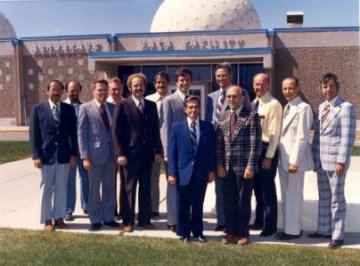
|
| Personal background |
|---|
Currently reside in Tucson, AZ; member of University of Arizona Affiliate OLLI/SAGE, Senior Continuing Education program
Computer Help Desk volunteer, Fellowship Square--Tucson
Activities since retiring from Hughes Space and Communications Group;
Volunteer and Docent Council Member, USS Midway (CV41)
Aircraft Carrier Museum, San Diego, CA
Computer Consultant to the Maritime Museum of San Diego, CA
Volunteer Legislative Aide in Colorado State Legislature
Volunteer Docent/computer instructor at The Denver City Library main branch, Denver, CO
Activities during thirty two year career with Hughes Space and Communictions:
Electrical/Mechanical Quality Control supervision of USAF ICBM missile base construction program;
Engineering Writing Project Management of Systems Documents for NASA/JPL Surveyor unmanned lunar landing program;
Business Administration management, classified USAF satellite reconnaissance programs.
US Navy veteran, Korean conflict era.
Electronics Division, USS Cusk SS-348, USN Submarine Launched Regulas Guided Missile Program (Pacific Fleet); |
| Thoughts about SETI and SETI@home |
|---|
Seti@home provides an opportunity to share some of my PC computing power with the larger community.
Life could exist on many Planets in the unbounded universe.
Earth should beam a repeating message of structured binary files depicting the perodic table of elements, pi, and other universal constants. Tide tables might just add some realism, and connection between maritime earth and other celestial bodies. See Mike in the above picture with some friends in an earlier space program, preceeded by the Surveyor Program that paved the way for manned lunar exploration. |
| Your feedback on this profile |
|---|
| Recommend this profile for User of the Day: |
I like this profile |
| Alert administrators to an offensive profile: |
I do not like this profile |
|
|

